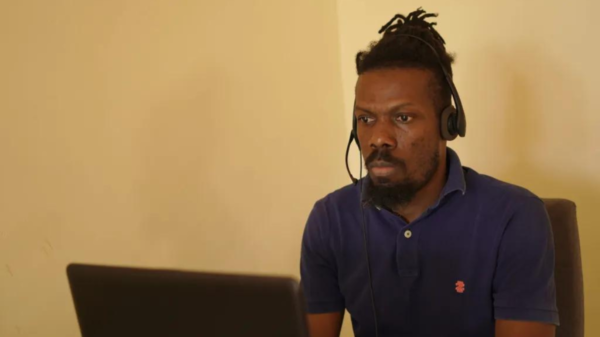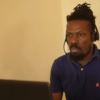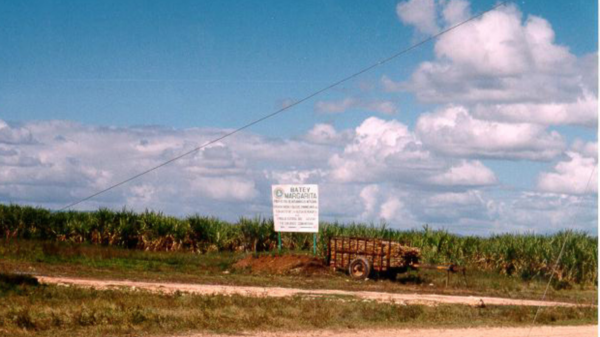The Haitian Times
THE CONVERSATION BY GARRY PIERRE-PIERRE

The Dominican Republic and Haiti share the island of Hispaniola, but relations between the two countries have been rancorous for almost two centuries. As Haiti once again teeters on the brink, I spent a week in the Dominican Republic, conversing with Haitians living there. This is the second column of a three-part series from those conversations. Read the first column here.
SANTO DOMINGO — For years, the Dominican Republic was just a transit point for me to get to Haiti. I didn’t spend much time there until 2010, after the earthquake that yet again shone international light on our beleaguered nation of more than 13 million people.
It was during that time I discovered a category of Haitians living there that didn’t get much coverage: University students. I met a group of them at Mother and Teacher Pontifical Catholic University in Santiago de los Caballeros, the DR’s second largest city.
There, I learned that unlike the other Haitians, the batey workers, students were spared the indignities of life in the neighboring nation as a Haitian. The students explained then that their academic pursuits earned a certain level of respect and deference from Dominicans. They were seen as future leaders of Haiti. And besides, who doesn’t respect a university student?
Fast forward to this decade. As Haiti finds itself tearing at the seams, Dominican officials have turned their ire onto Haitian students as well. The authorities have arbitrarily revoked some people’s visas and made the criteria for obtaining entry more difficult than I remembered.
Last month, I returned to the DR to talk to a new generation of students and talk to them about what it’s like here now. This time, my destination was ‘Capital,’ as locals call the bustling seaside city of nearly 3 million that is Santo Domingo.
The story hasn’t changed much. But day to day life has gotten more complicated.
For one, the students told me their worry was less about Dominican officials harassing them over visas. Their current challenges stem from families in Haiti, who struggle to pay tuition. Often, a relative in North America is the one footing the bill for advanced schooling in the DR.
Pop quiz: What do high school graduates in Haiti do?
I spent some time on the campus of Catholic University of Santo Domingo, where I met with some Haitians studying there. These students’ primary and secondary education were conducted mostly in French and Creole, while they were in Haiti. Yet, they are doing post-secondary work in Spanish. Many undergo an intensive Spanish learning program before enrolling.
For this new group of students, the opportunity to have attended a university in Haiti has remained elusive. You see, Haiti doesn’t have enough schools for the hundreds of thousands of high schoolers it has graduated. So year after year, youngsters face a life-changing question: What do I do after graduation?
The options are:
a) Don’t attend a university.
b) Enroll in a school based on your parents’ social connections.
c) Fly off to school in Europe or North America.
d) As a last resort, head east to the DR for university.
At Catholic University, the sons and daughters from families of modest means don’t have the contacts to be admitted or means to go far abroad. But they hunger for a better life. So, D it is.
I asked the group how they make a living. They depend on the largesse of family and friends overseas, they told me. They’ve all developed an entrepreneurial zeal. Some are caterers. Others sell goods from their homes. A few are event organizers while attending school full time.
Despite these difficulties, I found an air of optimism among my young compatriots. To them, no matter how bad things may be, it’s better on this side of Hispaniola. And, at least with a university degree, they have a fighting chance.
A bewildering choice
There are many things that confound me about Haiti and its government. This journey of Haitian students to the DR is one of them. I can’t understand why the government would not build the country’s higher education capacity to retain these young and talented minds at home.
According to the latest statistics, about 80,000 Haitian students are in the DR. Imagine the revenue that volume, were it to stay in Haiti, could generate. Imagine how you can decentralize the congested cities across the country.
At the risk of echoing John Lennon, imagine a better Haiti that can take care of its citizens. That’s what I want to do.
Let’s take the U.S. as an example. I know the two are polar opposites with a vast gap in wealth. The point is that every state in the union depends on colleges and universities as a major source of economic stimulus. Upstate New York couldn’t exist without its plethora of universities and the resulting cash infusions. On any given Saturday in the Fall, universities generate millions for their communities with fans filling up stadiums, staying at hotels and buying food — to support the sports programs alone.
I want to imagine something like that in Haiti. I want to see a Haiti where its best and brightest are not yearning to leave. Of all the challenges that Haiti faces, this one is doable. We just need to imagine Haiti as a republic, instead of as the untamed territory it has become.
Imagine… the great return
While in the DR, I also spoke with Dr. Michael Etienne, who owns a dental clinic in one of the better neighborhoods in Capital. He studied here years prior and faced the same difficulties as the other students. Etienne, a handsome man with an infectious positivity, told me that despite his good fortune, his native St. Marc is where his heart is. He wants to be there, but the reality of Haiti keeps him in Santo Domingo.
Imagine Etienne and a stream of other students returning to Haiti to run businesses, work in government and become productive members of Haitian society. Why is that so difficult to achieve?
Over the years, I’ve kept in touch with the Santiago bunch from 2010. I ran into one in Haiti, but all of the others live outside the country. Several are in the U.S., Canada and Chile. A few have remained in the DR.
All of them are successful and are raising families and the challenges that go with that. Imagine. Imagine. Imagine.





You must be logged in to post a comment Login